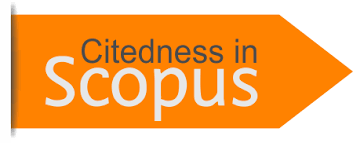Pemerolehan Bahasa Pertama Remaja Attention Deficit Hiperactivity Disorder Terhadap Arahan Semasa Pandemik Covid-19 [First Language Of Adolescents Attention Deficit Hiperactivity Disorder Towards Covid-19 Pandemic Instructions]
Keywords:
pemerolehan bahasa, bahasa pertama, Attention Deficit Hiperactivity Disorder, Covid-19 language acquisition, first language, Attention Deficit Hiperactivity Disorder, Covid-19Abstract
Kajian ini dijalankan bertujuan melihat sejauh mana pemerolehan bahasa remaja berkeperluan khas terhadap arahan sepanjang pandemik Covid-19. Selain itu, bertujuan menganalisis pemerolehan bahasa (B1) dalam arahan yang diberikan semasa pandemik dengan mengaplikasikan Teori Perkembangan Kognitif Piaget (1960). Seterusnya, kajian dijalankan dengan melihat kepada pemahaman tentang arahan dalam pematuhan Standard Operation Procedure (SOP) yang dikeluarkan oleh Kementerian Kesihatan Malaysia (KKM) dengan mengaitkannya menggunakan teori yang dipelopori oleh Jean Piaget. Pemerolehan bahasa (B1) juga dilihat melalui pengetahuan tentang virus Covid-19 melalui informasi yang dikeluarkan oleh KKM secara rasmi. Responden kajian adalah seorang remaja yang dikategorikan sebagai Orang Kelainan Upaya (OKU) masalah pembelajaran dari negeri Perlis dipilih dalam kajian ini. Instrumen kajian yang digunakan adalah artikel dan poster yang dikeluarkan oleh KKM melalui laman facebook rasmi KKM. Temu bual bersama responden dirakam dan ditranskripsi secara teks untuk proses dokumentasi. Keputusan kajian menunjukkan bahawa remaja berkeperluan khas dapat memahami dengan jelas arahan semasa pandemik Covid-19 kerana terdapat arahan yang diketahui dengan jelas melalui media elektronik. Malah, peringatan secara berulang kali oleh ahli keluarga dan orang sekeliling menjadi perkara penting yang diingati dengan jelas oleh responden. Responden dilihat dapat melaksanakan arahan semasa pandemik Covid-19 dengan jelas dan memahami tentang bahaya serta kesan akibat jangkitan virus tersebut kepada manusia. Malah, melalui kajian ini cara penyampaian maklumat sepanjang pandemik Covid -19 yang menunjukkan keberkesanannya boleh diaplikasikan dalam proses pembelajaran remaja berkeperluan khas.
This study was conducted to aim the language acquisition of teenagers with special needs education in response to instructions during the Covid-19 pandemic. In addition, it aims to analyse the acquisition of language (B1) in the instructions given during the pandemic by applying Piaget’s Theory of Cognitive Development (1960). Next, the study was conducted by looking at the understanding of the instructions in compliance with the Standard Operating Procedure (SOP) issued by the Ministry of Health Malaysia (KKM) by relating it using the theory pioneered by Jean Piaget. Language acquisition (B1) is also seen through knowledge about the Covid-19 virus through information issued by the Ministry of Health officially. The study respondent is a teenager who is categorized as people with disabilities (OKU) with learning problems from the state of Perlis selected in this study. The research instrument used an articles and posters issued by the Ministry of Health through an official Facebook page of the Ministry of Health Malaysia. Interviews with respondents were recorded and transcribed in text for the documentation process. The results of the study show that teenagers with special needs education can clearly understand instructions during the Covid-19 pandemic because there are clearly known instruction through electronic media. In fact, repeated reminders by family members and people around important things that are clearly remembered by respondents. Respondents were seen to be able to carry out instruction during the Covid-19 pandemic clearly and understand the dangers and effects of the virus an infection on human. In fact, through this study the method of delivering information throughout the Covid-19 pandemic that shows its effectiveness can be applied in the learning process of teenagers with special needs.















